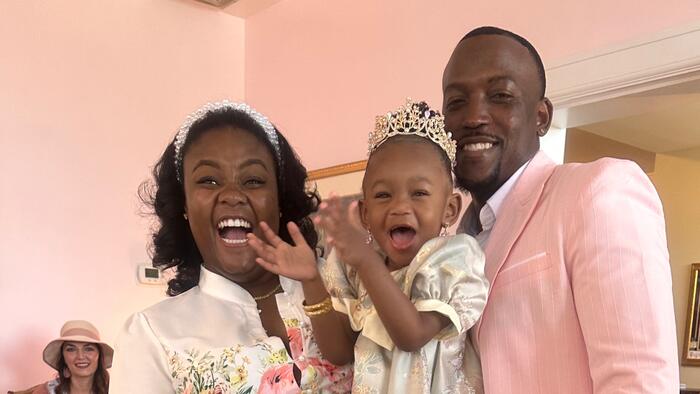Bevelyn Williams, a prominent pro-life activist and mother, has begun serving a 3.5-year sentence in an Alabama federal prison for unlawful assembly. This legal consequence stems from her participation in a two-day pro-life protest outside a Planned Parenthood facility in New York City in June 2020. Williams has publicly expressed her disappointment at the harsh outcome of her legal battle, revealing through social media that her appeal for bail, which she sought to remain with her husband and young daughter, was denied by the same judge who sentenced her. Despite her legal team’s efforts to secure a stay pending appeal, she was ultimately required to surrender to FCI Aliceville.
As Williams navigates this challenging chapter in her life, her husband has taken to social media to document their journey. His emotional video, recorded as they traveled to the prison, conveys the gravity of their situation, emphasizing that the Biden-Harris administration has created a significant divide in their family dynamic, forcing him into the role of a single parent. He calls attention to the broader implications of Williams’ sentence, urging others to understand the ramifications of political actions on everyday families and emphasizing the serious nature of her punishment for what they believe is a peaceful protest.
Williams’ case has sparked controversy and debate, particularly regarding the charges brought against her. The Department of Justice accused her of intimidating and obstructing individuals seeking reproductive health services, characterizing her conduct as a serious violation. However, Williams and her supporters argue that her offense falls under the more benign label of “unlawful assembly,” asserting that she never engaged in violence and that the portrayal of her actions by mainstream media is misleading. Williams has taken to social media once again to clarify her situation, emphasizing that her sentence reflects a political agenda rather than the severity of her actions.
In light of her sentencing, Williams has turned to online fundraising platforms, initiating a GiveSendGo account to garner support during her incarceration. This step indicates her intent to maintain some level of connection with her supporters and illustrates the financial implications of her legal battles. The growing visibility of her case could serve as both a rallying point for her followers and a cautionary tale for others engaged in activism, especially within politically charged contexts surrounding pro-life and reproductive rights issues.
Political dimensions surrounding Williams’ sentencing have further fueled public discourse around her case. Supporters, including various conservative commentators and activists, are using her situation to criticize the Biden administration’s approach to dissent and civil liberties. They argue that the punitive measures applied to Williams exemplify an administration that is intolerant of opposing viewpoints, particularly on divisive topics like abortion. This narrative resonates particularly within pro-life circles, who view Williams’ imprisonment as a grave injustice and an affront to free speech and peaceful protest rights.
As her case garners national attention, the implications extend beyond Williams herself. It raises crucial questions about the balance between maintaining public order and allowing for civil protests, especially on controversial issues. The harsh penalties for activists like Williams could discourage others from participating in protests, potentially stifling political engagement. As Williams begins her prison term, the intersection of activism, politics, and legal repercussions will likely remain at the forefront of discussions regarding the rights of individuals to peacefully advocate for their beliefs in America.

